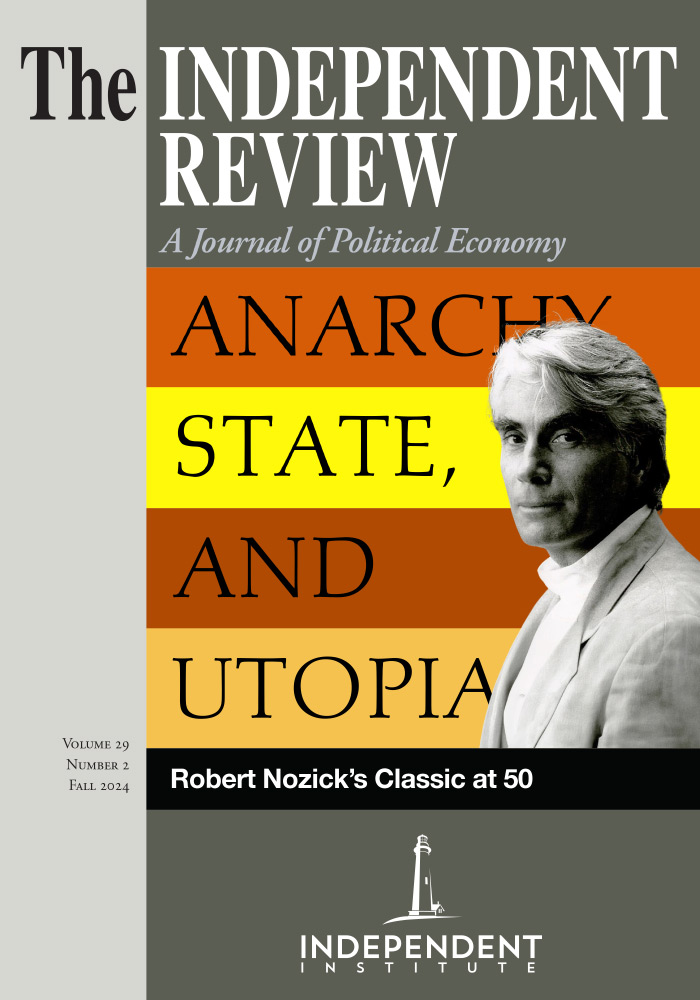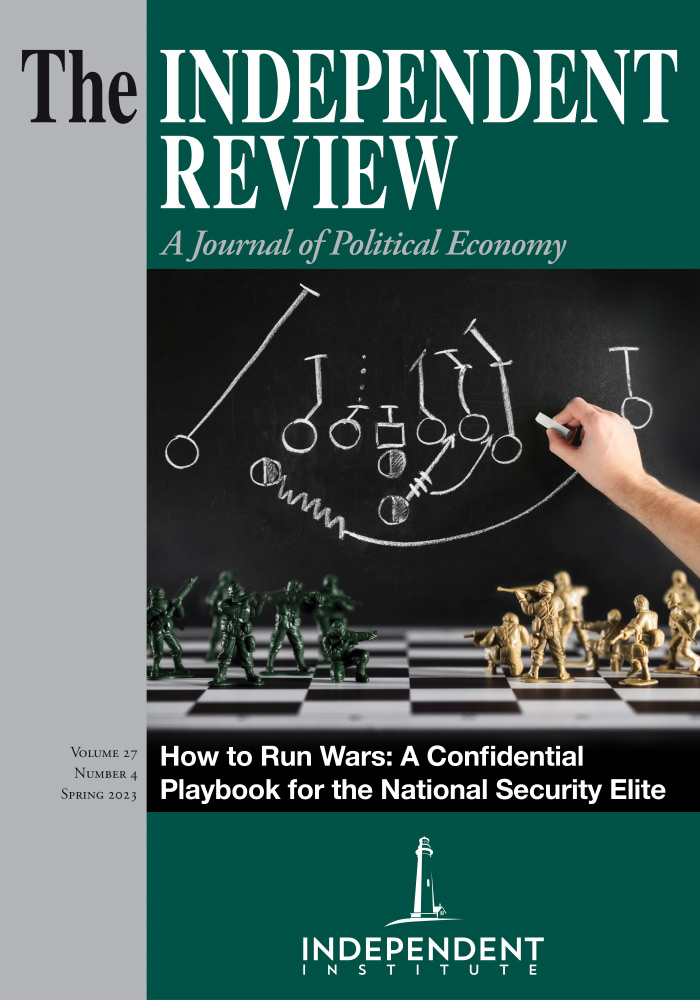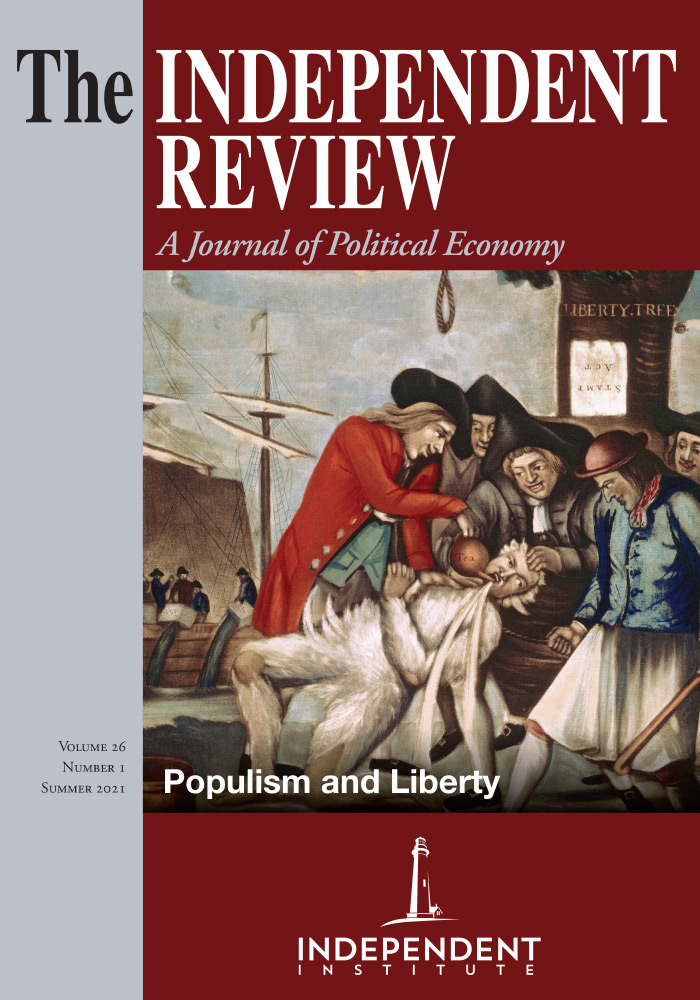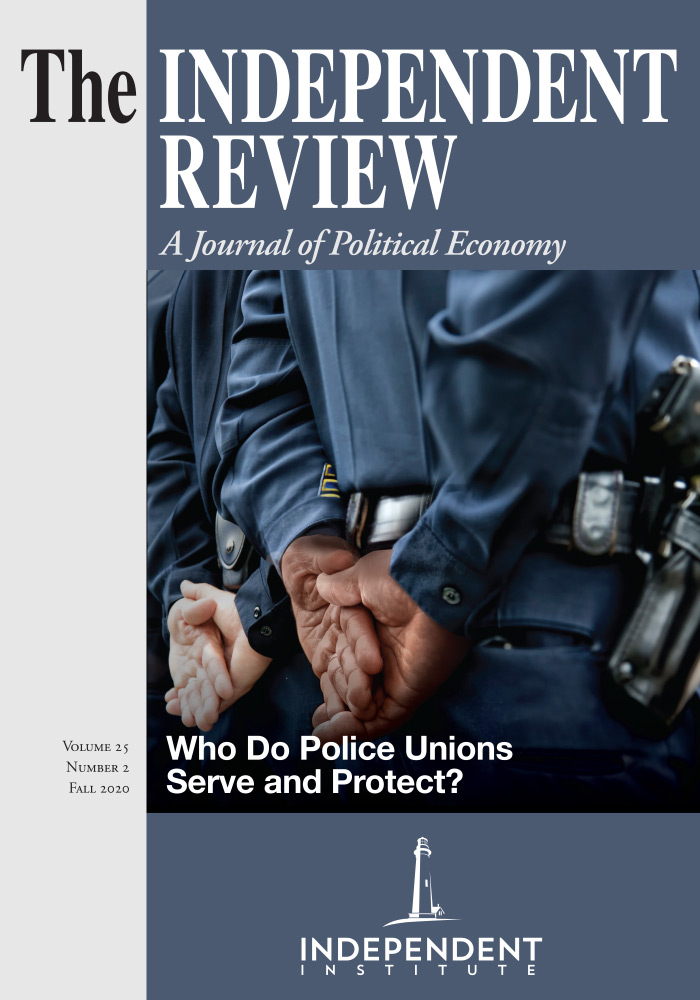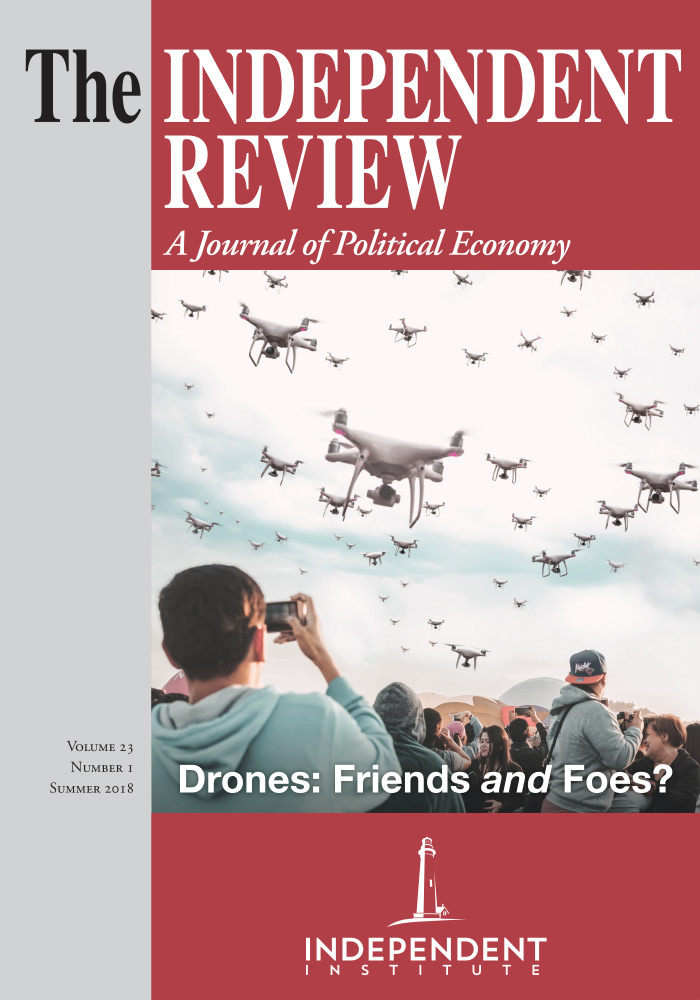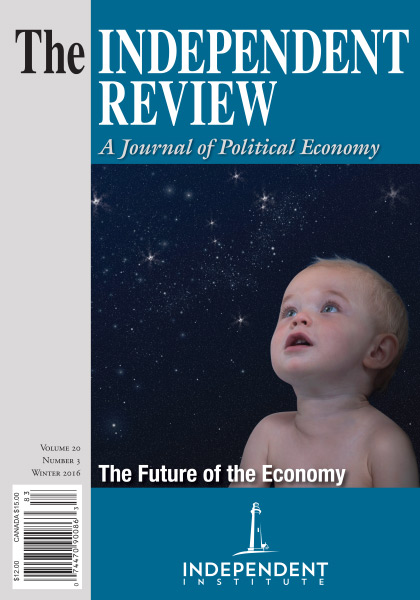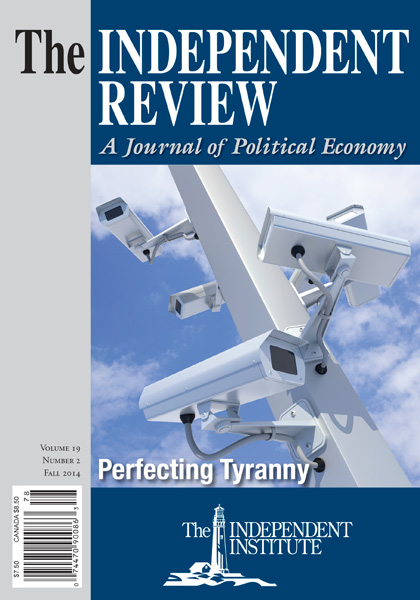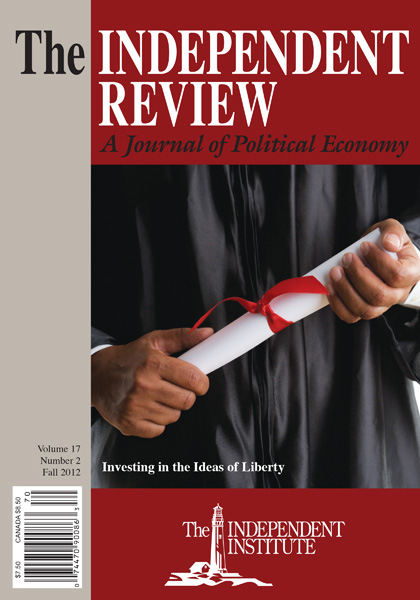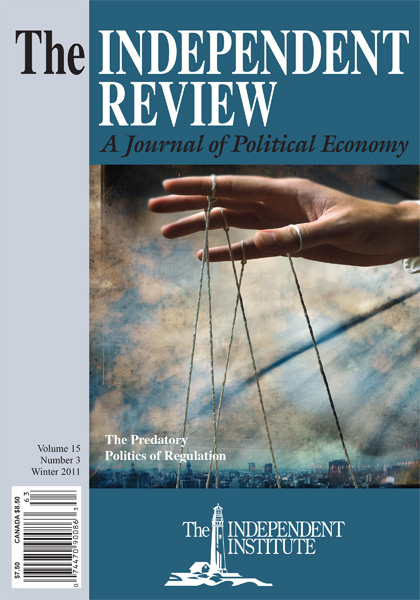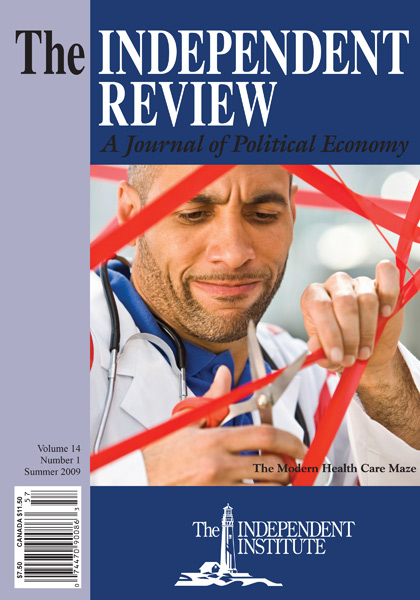Robert Nozick’s Anarchy, State, and Utopia famously begins with the assertion that “Individuals have rights, and there are things no person or group may do to them (without violating their rights).” Nozick’s gripping argumentation sent shockwaves through the world of political philosophy when it was published fifty years ago, and it continues to inspire great minds today—including the thinkers in this symposium. Nozick’s focus on justice in both exchange and individual interactions animates his defense of the legitimate minimal state.
Article
Suppose you say to the proverbial man on the street:
If you obtained your property justly, you can trade it with or give it to anyone you want! You just can’t harm anyone in the process. And no one can take your property, except in a dire circumstance (if, say, they’re starving).
The man is likely to respond, “Tell me something I don’t know!”
Robert Nozick develops this intuitive line of thought and many more in exquisite detail in Anarchy, State, and Utopia (1974; henceforth ASU). At the time of release, Nozick’s gripping argumentation sent shockwaves through the world of political philosophy, and it continues to inspire great minds today. Moreover, the mere fact that it was and remains shocking is evidence of the dispositions and beliefs of political philosophers and social critics then and now. For better or worse, these dispositions and beliefs sometimes flatly oppose those of the man on the street.
Shortly before ASU appeared, John Rawls’s A Theory of Justice (1971) helped to revive the world of political philosophy. As discussed in The Independent Review’s semicentennial symposium in 2021, Rawls developed a novel theory of distributive justice that opposed utilitarianism and prioritized the needs of the worst off. The cottage industry of scholars who responded to his work reanimated mainstream political philosophy. Yet, while Nozick remains foremost among the respondents, ASU is far more than a mere response to Rawls. This brilliant work merits a semicentennial symposium of its own.
Key Ideas in Anarchy, State, and Utopia
Some core themes in ASU include the existence of strong private property rights, the limits these impose on political actors, including states (see, e.g., Huemer 2013; Otteson 2014), and the value of a society of diverse people who are free to lead their own lives and experiment with different forms of social arrangements and values (see, e.g., Robson 2021), leaving others free to do the same. Yet a key thread of ASU is often missed. ASU is not just a remarkable work in political philosophy. It is also a notable contribution to our understanding of the logic of market exchange—and thus, business—and its centrality to philosophical questions around distributive justice. ASU concerns both the business or subject matter of liberty, and the liberty of business.
Nozick (1974, ix) opens ASU with this powerful line: “Individuals have rights, and there are things no person or group may do to them (without violating their rights).” Nozick then asks, “How much room do individual rights leave for the state?” This pair of remarks guides the inquiry of ASU. Ordinary adults are free to exchange. If they acquire and exchange their resources justly, and those resources were previously exchanged justly, then any outcome from sets of just transactions is permissible by the lights of justice. What businesses and individual market participants do, then, is paradigmatically just—a powerful claim.
A focus on justice in both exchange and individual interactions more broadly animates Nozick’s story of the rise of the legitimate minimal state. Nozick’s first challenge in ASU is to show why, as he thinks, the emergence of the state can be morally justified in conditions of anarchy. This can be done, he argues, if the state emerges in a series of steps none of which is itself unjust. Consider Max Weber’s view ([1919] 1958, 78) of the state as an entity that claims a legitimate territorial monopoly on the use of violence. The idea is that, around here, we (the state) get the police power. We make, interpret, and enforce laws. And we (an oft-unspecified “we”) have justification and legitimacy (Simmons 2001). How, though, did we get such authority? Prompted by Murray Rothbard to reconsider the moral justification of the state, Nozick (1974, xv) says that people in anarchic society would pay protective agencies to secure their interests. A dominant protective agency would emerge and compensate those who incur costs from its emergence. If the compensation is adequate, then the dominant agency could become a legitimate minimal state.[1] Nozick develops this argument without appealing to standard justificatory approaches he finds questionable. He observes, for instance, that “tacit consent isn’t worth the paper that it’s not written on” (287).
Nozick argues that justice both in and outside the minimal state must include justice in exchange. On this argument, we cannot look to the outcome of a distributive process and reliably infer, on its basis, that the distribution is itself just or unjust. The market process involves separate persons with diverse beliefs, preferences, desires, interests, and needs who change continually, interact dynamically, and exchange unpredictably. Nozick argues that if one acquires one’s holdings justly, trades or gifts them voluntarily, and no rectification is needed for past injustices, then whatever outcome obtains from diverse market interactions, that outcome is just.
Consider Nozick’s famous discussion of Wilt Chamberlain, the basketball legend who once scored 100 points in a game and averaged 50 points and 25 rebounds for an entire season. In Nozick’s scenario, Chamberlain makes great sums of money from willing spectators. Fans pay to see him play, and he gets rich. Nozick thinks that we cannot identify any injustice in the process by which Chamberlain becomes wealthy. To all appearances, the distributive process is just, notwithstanding any wealth inequalities it yields, and regardless of Chamberlain’s success owing partly to natural luck in his physical stature and athleticism. My own chapter in this symposium details Nozick’s account of distributive justice and explores how anyone interested in Christian thought vis-à-vis distributive justice might understand the contributions of ASU.
A third, much-neglected part of ASU is an insightful discussion of how a community of communities could constitute a truly flourishing society. Nozick accomplishes several tasks there, including, for instance, (1) indicating the importance of individual freedom to associate and try different forms of life within moral limits and (2) identifying deep epistemic limits of subgroups in centrally planning an ideal or utopian society. To Nozick’s mind, the most promising societies emerge not mainly from a central plan but far more from the bottom up. Numerous diverse members of society and groups plan their own lives, interactions, and activities, and these constitute society itself.
In his inimitable style, Nozick asks:
It is helpful to imagine cavemen sitting together to think up what, for all time, will be the best possible society and then setting out to institute it.
Do none of the reasons that make you smile at this apply to us?
Nozick also invites reflection on the promise or perils of social planning and on the limits in our capacity to identify, in detail, just what “the” good life would be:
Wittgenstein, Elizabeth Taylor, Bertrand Russell, Thomas Merton, Yogi Berra, Allen Ginsburg, Harry Wolfson, Thoreau, Casey Stengel, The Lubavitcher Rebbe, Picasso, Moses, Einstein, Hugh Heffner, Socrates, Henry Ford, Lenny Bruce, Baba Ram Dass, Gandhi, Sir Edmund Hillary, Raymond Lubitz, Buddha, Frank Sinatra, Columbus, Freud, Norman Mailer, Ayn Rand, Baron Rothschild, Ted Williams, Thomas Edison, H. L. Mencken, Thomas Jefferson, Ralph Ellison, Bobby Fischer, Emma Goldman, Peter Kropotkin, you, and your parents. Is there really one kind of life which is best for each of these people? (1974, 310)
This is a small taste of Nozick’s subtle contributions in ASU, which exhibit impressive range. Nozick challenges the moral foundations of heavy state redistribution of wealth. He develops a powerful criticism of Rawls (1971), the most cited Western political philosopher of the previous century. He discusses the splendid diversity of human life and how we can learn so much from each other when free to associate voluntarily and lead our own, unique lives. Well aware of these contributions and more, the distinguished authors of this symposium offer a feast of insights into Nozick’s contributions as the author of ASU and a remarkable person in his own right.
The Essays
In “My Dinner with Nozick,” David Schmidtz begins by observing: “While no one comes close to Rawls in terms of citations or influence, no one comes closer than Nozick.” As perhaps Schmidtz alone can, he details the humanity of Nozick the person, alerting the reader to Nozick’s personal warmth and rare intellectual combination of ingenuity, curiosity, and openness to learning. In breaking bread with Nozick, Schmidtz discovered a kinship with a conversation partner whose philosophical prowess was eclipsed only by his desire to learn. As a teacher and philosopher, Nozick cared more about helping others navigate the complex truths of human life than converting them to the views of yet another fallible (though ingenious) human being. Aware of Nozick’s rarefied talent as a philosopher (see, e.g., Schmidtz 2002), Schmidtz gives us a special portrait of something more important: Nozick the man.
In “Robert Nozick and the Moral High Ground,” Jason Brennan discusses Nozick’s argumentative strategy in ASU. Nozick does not start by making concessions that cede ground to opponents. Rather, he demonstrates the untoward outcomes of taking opponents’ arguments to their logical conclusions. A powerful example is Nozick’s claim that at least some taxation amounts to requiring people to work and is, thus, on a par with forced labor.
Jessica Flanigan and Christopher Freiman consider distributive egalitarianism, the view that the state can and should use its power to promote and maintain egalitarian distributions of goods. In “Putting Wilt Chamberlain Back in the Game,” the authors deploy resources from ASU to critically resist this view. They argue that relational egalitarianism regarding moral status or equal standing is more plausible than an egalitarianism of distributive outcomes.
In “Anarchy, State, and Utopia at Fifty: Reassessing Nozick on Pluralism,” Aeon J. Skoble examines “the pluralism of human nature and the significance of that pluralism for political philosophy.” Skoble argues that a full understanding of our pluralism (e.g., diverse preferences and value schedules) has important but underappreciated implications for Rawlsians, anarchists, and socialists alike. Skoble shows how Nozick illustrates the remarkable differences across persons and societies and how our understanding of justice and morality broadly should be informed by an awareness of these differences.
Richard M. Salsman investigates Nozick’s shift from seeing taxation as tantamount to forced labor (Nozick 1974) to adopting a more Rawlsian approach favorable to inheritance taxes (Nozick 1989) in “Nozick on Taxation: The Necessity of Funding the Minimal State.” This important pivot is often missed in Nozick’s published views on taxation. Salsman skillfully explicates Nozick’s brief but important treatment of different forms of taxation and the justice of each.
In “New Problems in Nozick’s Derivation of the Minimal State,” David Gordon argues for three conclusions. First, it is not clear that anarchy would not be morally superior to a Nozickian minimal state. Second, it is predictively uncertain that people would form a dominant protective association and, ultimately, a minimal state. Outliers or holdouts would refuse to enter the association, and there is no clear, morally licit way in which everyone would join a single protective association and then state. Third, there is no sufficiently unrisky way for the dominant protective association to rule out decision procedures, such as forms of legal adjudication, employed by non-dominant associations.
In “Nozick on the Separateness of Persons: A Reconstruction,” Eric Mack explores Nozick’s idea of the separateness of persons (see also, e.g., Mack 2018). Our distinctness as individuals has weighty implications for our understanding of interpersonal interaction and association in accordance with the moral side constraints (rights) that Nozick cautions us to take seriously at the outset of ASU and throughout. To accomplish his aims, Mack insightfully examines, inter alia, Rawls’s response to utilitarianism and Nozick’s response to both utilitarianism and Rawls’s account of distributive justice.
Conclusion
It is my hope that readers will welcome this semicentennial celebration of Nozick’s classic text in political philosophy. We have assembled an array of esteemed authors who are eager to share their interpretive and argumentative insights about ASU. I suggest that one of these is the oft-overlooked idea, in philosophy and beyond, that a just society is one where businesses and other market actors are free to associate and exchange with others absent a weighty argument to the contrary. In other words, freedom to associate is the moral default. Our authors explore this and other ideas from Nozick—both what they were when Nozick wrote Anarchy, State, and Utopia and what they can be today.
Note
[1] For a challenge, see Huemer (2013).
References
Huemer, Michael. 2013. The Problem of Political Authority: An Examination of the Right to Coerce and the Duty to Obey. New York: Palgrave Macmillan.
Mack, Eric. 2018. Robert Nozick’s Political Philosophy. In The Stanford Encyclopedia of Philosophy, edited by Edward N. Zalta.
Nozick, Robert. 1974. Anarchy, State, and Utopia. New York: Basic Books.
———. 1981. Philosophical Explanations. Cambridge, Mass.: Harvard University Press.
———. 1989. The Examined Life. New York: Simon & Schuster.
Otteson, James R. 2014. The End of Socialism. Cambridge: Cambridge University Press.
Rawls, John. 1971. A Theory of Justice. Cambridge, Mass.: Harvard University Press.
Robson, Gregory. 2021. The Rationality of Political Experimentation. Politics, Philosophy & Economics 20:67–98.
Schmidtz, David, ed. 2002. Robert Nozick. Cambridge: Cambridge University Press.
Simmons, A. John. 2001. Justification and Legitimacy: Essays on Rights and Obligations. Cambridge: Cambridge University Press.
Weber, Max. (1919) 1958. Politics as a Vocation. In From Max Weber: Essays on Sociology. Edited and translated by H. H. Gerth and C. Wright Mills, 77–128. New York: Oxford University Press.
| Other Independent Review articles by Gregory J. Robson | ||
| Spring 2025 | All the Kingdoms of the World: On Radical Religious Alternatives to Liberalism | |
| Winter 2024/25 | The Political Economy of Distributism: Property, Liberty, and the Common Good | |
| Fall 2024 | Christianizing Nozick | |
| [View All (4)] | ||

